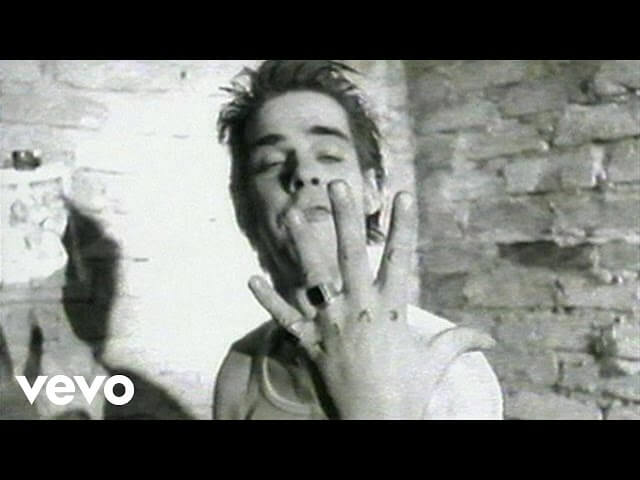Nick Cave

Geek obsession: Nick Cave
Why it’s daunting: Nick Cave is a creep. Or at least, he’s long cultivated and capitalized on his ominous appearance and persona, a mix of debauched tent-revivalist, junkie poet, gothic troubadour, and lately in Grinderman, a sleazy, mustachioed hustler. But over the course of his 30-plus year career—most of that spent with his longest-running, best-known band The Bad Seeds—Cave has substantiated his mystique with raw, bawdy, ecclesiastically orgasmic songs that aren’t afraid to flaunt their vulnerability. While his thicket of influences may seem impenetrable at first, he’s managed to consistently and credibly synthesize folk, blues, post-punk, classic pop songwriting, avant-garde noise-mongering, and a Weill-Brecht air of morbid theatricality. Lyrically, he dips his pen in the mingled venoms of debased spirituality and diseased lust—not to mention the runoff of the ruptured human heart—and delivers it all in an apocalyptic howl that can testify to the heavens as easily as whisper sweet temptations.
Possible gateway: Nick Cave And The Bad Seeds, Tender Prey
Why: Various anthologies of Nick Cave’s music exist, but when it comes to actually digging into his discography, 1988’s Tender Prey is the ideal first shovelful. The group’s fifth album is the sound of a ragged, erratic patch of darkness being pruned and sculpted—but only barely. Cave relocated his breakthrough post-punk band, The Birthday Party, to London from his native Australia in 1980, and The Bad Seeds grew from that lineup to encompass everything from gospel to cabaret to blues while retaining The Birthday Party’s aggressive attack and transgressive grime. Tender Prey, though, sought the sweet spot between deviance and refinement. The album’s signature track, “The Mercy Seat,” is a string-sawing, white-knuckle intro that never breaks into a conventional song, instead building and spiraling like a runaway locomotive to oblivion. Meanwhile, Cave acts out every primal impulse—from the sacred to the profane—he’d ever put into verse. Or tried to put out of his mind.
Next steps: There isn’t a piece of music with the name “Birthday Party” on it that isn’t essential. Barring compilations, the best to begin with is 1981’s Prayers On Fire. The group’s debut full-length nauseously balances the tentative weirdness of The Birthday Party’s early incarnation, The Boys Next Door, and the meandering swampiness of 1982’s Junkyard. There are traces of The Stooges, Captain Beefheart, and the era’s fertile post-punk eruption in Prayers, but for the most part, Cave and crew mangle rock ’n’ roll in a way no one had before—although many have tried since. Still, it’s punchy and concise enough to serve as an able baptism by fire.
The Bad Seeds had begun to grow a little rarified as the new millennium progressed, which set up Cave for potential disaster: his back-to-basics, midlife-crisis side project. Fortunately that project, Grinderman, channels Cave’s encroaching decrepitude as potently as The Birthday Party harnessed his animalistic youth. Both of the outfit’s albums, 2007’s Grinderman and 2010’s Grinderman 2, are worth their weight in lost hair and spent testosterone. The debut is the one to grapple with first; recorded in a mere four days with Cave on guitar, an instrument he rarely plays, Grinderman oozes infected riffs and dirty-old-man nastiness. Curiously, The Bad Seeds’ latest album, 2008’s vicious Dig!!! Lazarus Dig!!!, could almost pass as a Grinderman release—and because the bands share members, it has left fans wondering how the two might feed off each other in the future.
 Keep scrolling for more great stories.
Keep scrolling for more great stories.
